CRIMES OF THE FUTURE (2022)
As humans adapt to a synthetic environment, with new transformations and mutations, a celebrity performance artist publicly showcases the metamorphosis of his organs...
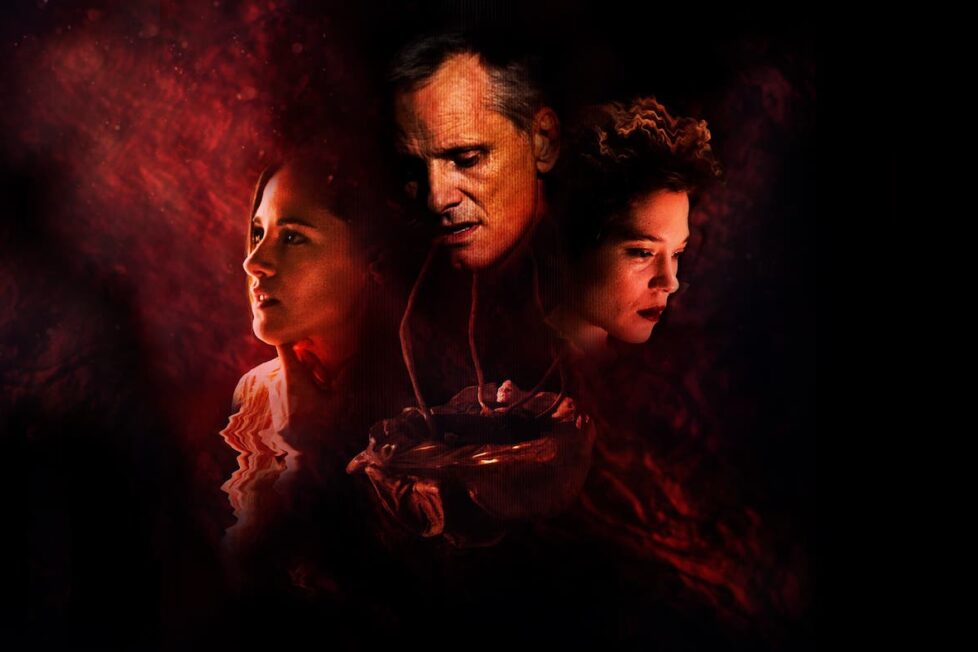
As humans adapt to a synthetic environment, with new transformations and mutations, a celebrity performance artist publicly showcases the metamorphosis of his organs...


David Cronenberg has steered clear of the body-horror movies that made his name since eXistenZ (1999) but here makes a mostly triumphant return to the sub-genre with his first full-length feature in eight years. Based on a screenplay he wrote back in the 1990s, Crimes of the Future shares a title with his unrelated 1970 film of the same name and reinterrogates many of the themes and ideas Cronenberg’s work has explored over the past six decades, particularly those concerning the interface of the human body with technology.
Cronenberg’s absence from the body-horror landscape has seen others move in on his territory—perhaps most successfully the director’s own son Brandon Cronenberg (Possessor) and French tyro Julia Ducournau (Titane). But Crimes of the Future is so out there that not even a film in which a woman has sex with, and gets pregnant by, a souped-up muscle car can hold a candle to its visceral oddness. 47 years on from his breakthrough Shivers (1975), Cronenberg Snr still brings the squishy and transgressive in a way no one else quite manages.
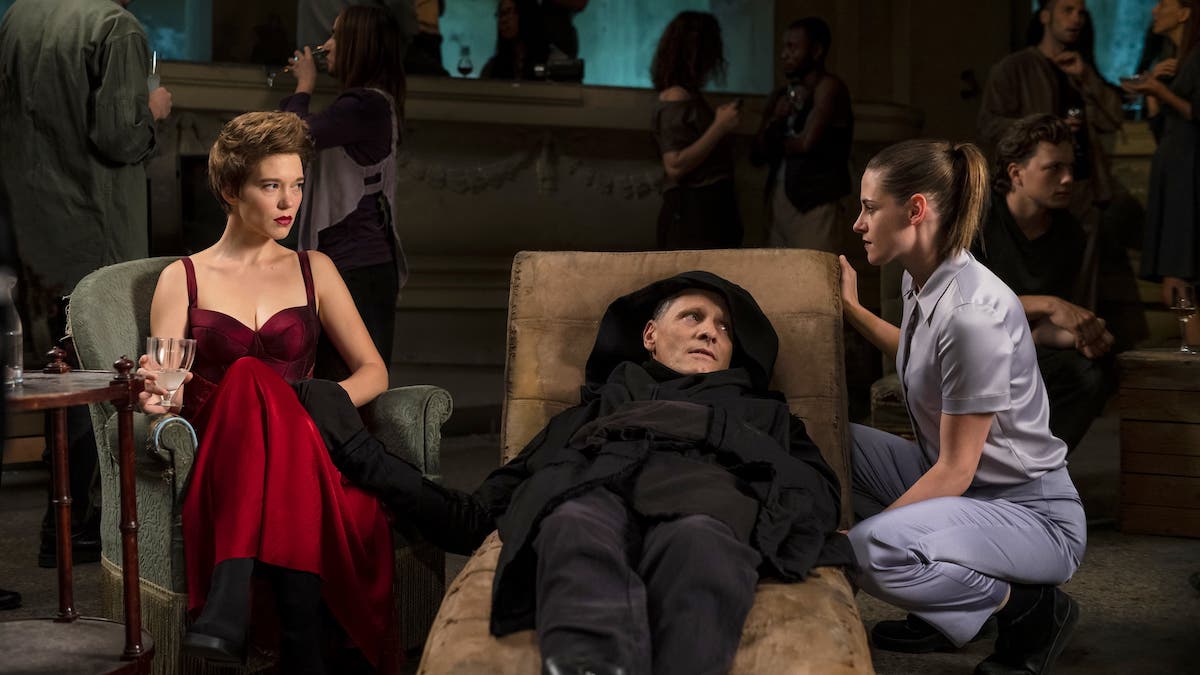
Set in some unspecified near-future, we’re introduced to a world in which sections of humanity have started to evolve and behave in ways that have the authorities concerned—growing new internal organs, proving immune to pain and infection (which seem to have all but vanished), even conducting amateur “desktop surgery”. Some, including Saul Tenser (Viggo Mortensen), are evolving faster than others (he suffers from a condition called Accelerated Evolution Syndrome) and has turned his ability to grow new organs into performance art, which, we’re reliably informed, is “all the rage these days”. Tenser, although treated like a rock star, is clearly quite unwell—coughing, hacking, and grimacing his way through every interaction as his body rebels against itself. At intimate shows in underground venues, Tenser allows partner Caprice (Léa Seydoux) to cut him open and remove these newly-minted organs—which, as an artistic flourish, she’s tattooed—using a remote-control surgery unit that looks for all the world like a coffin designed by HR Giger.
So far, so straightforward (well, hardly, but you get my meaning). In the background, however, lurk all manner of intrigues: a government department (staffed by Don McKellar and Kristen Stewart) where those with new internal organ growth must register; a group of radical evolutionists (including Scott Speedman’s Dotrice) who consume industrial waste; an ‘Inner Beauty’ pageant in which Tenser is invited to participate; a detective (Welket Bungué) keen to shut down the radicals and who has seemingly recruited Tenser to his cause; the murder of an eight-year-old boy who eats plastic, and a pair of female tech supports with a penchant for nudity and assassination. There’s a dizzying number of plates that Cronenberg keeps spinning and it’s, therefore, no surprise the film’s 107-minute runtime simply glides by.
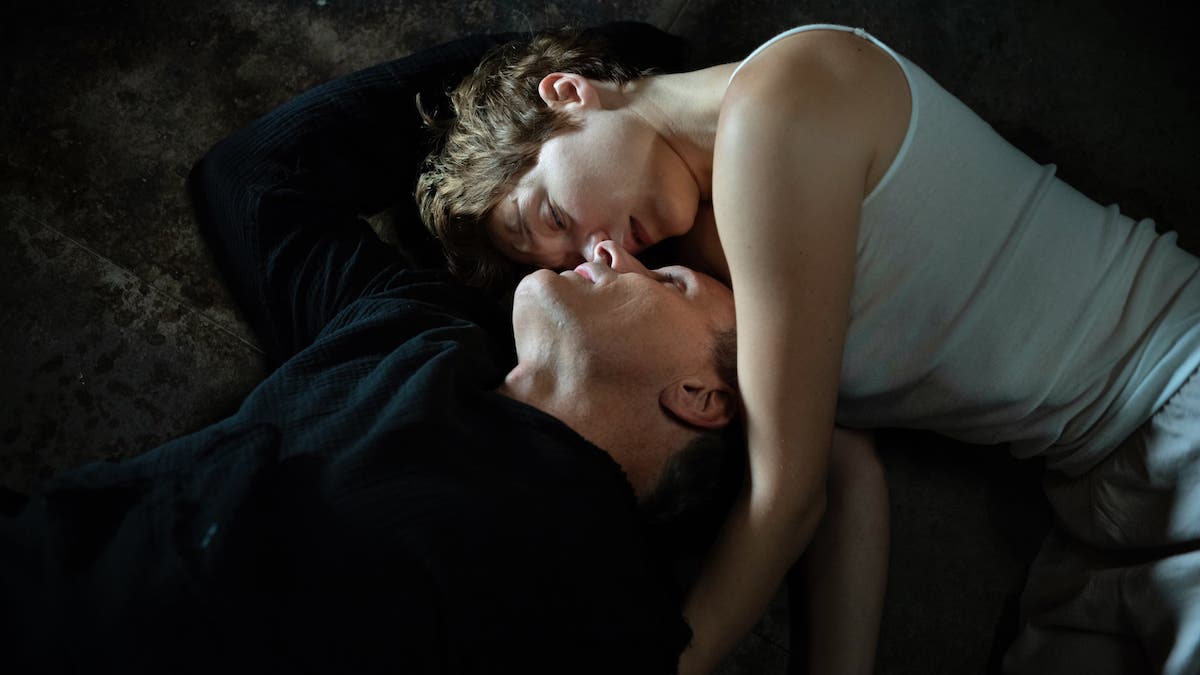
Cronenberg asks more questions than he answers, and a first viewing is likely to leave you a little nonplussed (as is a second, to be honest). Filmed in Greece but with primarily American and Canadian actors in the leading roles, the director is happy to keep matters of setting and backstory as vague as possible, inviting you to fill in the blanks. The idea seems to be that humanity has suffered some ecological catastrophe—the sight of a semi-submerged ship in the opening scene and similar rusted hulks elsewhere may be a visual metaphor for the fall of North American (and beyond) civilisation.
Much of this ‘Future Greece’ is dystopian, shabby, and austere—peeling paint, ugly graffiti, bare floors and walls, distressed wood and shattered plaster—while its tech is a weird mix of the wildly futuristic and the mundanely analogue. Cronenberg employs a muted colour palette, cinematographer Douglas Koch lingers lovingly over the rough textures of blasted rock and rusted metal, while Academy Award-winning composer Howard Shore’s score is grand and classical one minute, clanking and experimental the next. You’re quickly seduced into this outlandish milieu even if you never quite get a handle on it.
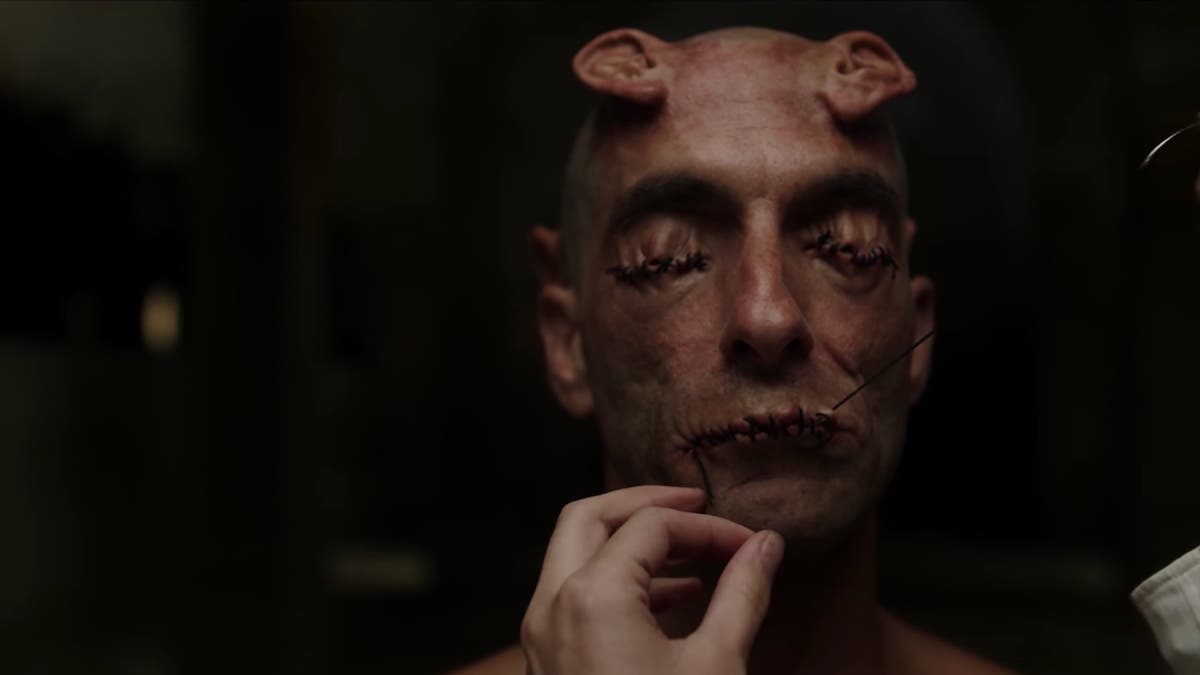
Themes and ideas come thick and fast but can probably be boiled down to two enquiries: what might a world without pain look like? And if human beings are evolving, at what point do they cease to be human? The exploration of these notions leads, inevitably, to how sex might work in this brave new world. According to Stewart’s character, Timlin, “surgery is the new sex”, and judging by the amount of sensual cutting and eroticised dissecting that goes on here, she might well have a point. Talky, philosophical digressions on the nature of art are also fairly high in the mix. Who is the true artist in their relationship, Caprice or Tenser? Should what they do even be considered art in the first place? Life found a way to reassert itself in Jurassic Park (1993) and art does something similar in Crimes of the Future—beauty (although never more in the eye of the beholder than it is here) can be made from anything and found anywhere. Even in someone’s mutated innards in a fucked-up post-apocalypse.
Cronenberg has fun with the tech (of course!)—a fleshy remote-control device that looks like a shell-less turtle, a bed that hangs down from the ceiling like the cocoon of some giant insect, an ergonomic chair that is meant to aid digestion but resembles the skeleton of an alien lifeform. One wonders where it all comes from and what exactly has been the catalyst for humanity’s new evolutionary cycle. Clearly, not everyone is happy about it. A mother murders her son when she sees him eating a plastic wastepaper basket, later calling him a “creature” and suggesting he came not out of her womb but from “outer space”. There’s a paranoia here, a fear of the other—that those in the process of evolving are becoming less human as they do so. But if the newly evolved aren’t human anymore, what exactly are they?
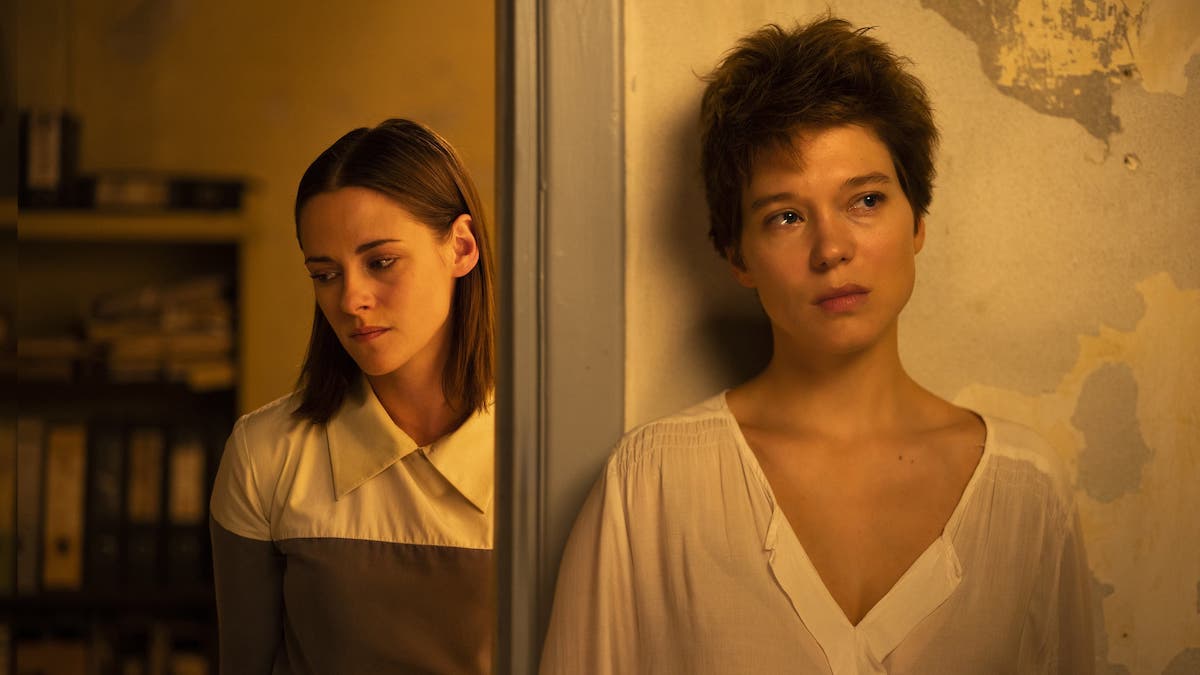
Crimes of the Future walks a tightrope between being brilliantly bizarre and patently ridiculous. Indeed, if one were to write a parody of Cronenberg’s oeuvre, it might look and sound like this movie! There are moments when one isn’t sure whether to laugh out loud, especially when Tenser is sat in his skeletal feeding chair, as it jigs and twitches like the world’s worst fairground ride or when he skulks, hooded, in the shadows, spluttering away as if cosplaying as a consumptive Batman. And some of the dialogue might work better in a comic-book than it does when spoken aloud: “watching you suddenly filled me with a desire to cut my face open,” gushes Caprice at one point, Seydoux’s breathless, French-inflected delivery only adding to the clumsiness of the line.
Is Crimes of the Future a match for Cronenberg’s past glories? Probably not. Scanners (1981), The Fly (1986) and Crash (1996) arguably remain the seminal touchstones of a long and storied career. But the Canadian’s 22nd film—discounting TV movies and shorts—more than gets by on its gleeful strangeness and the sheer heft of its ideas and provocations. The director might be 79 years old now but he’s still knocking it out of the park. Long live the old flesh.
CANADA • UK • GREECE | 2022 | 107 MINUTES | 1.85 : 1 | COLOUR | ENGLISH

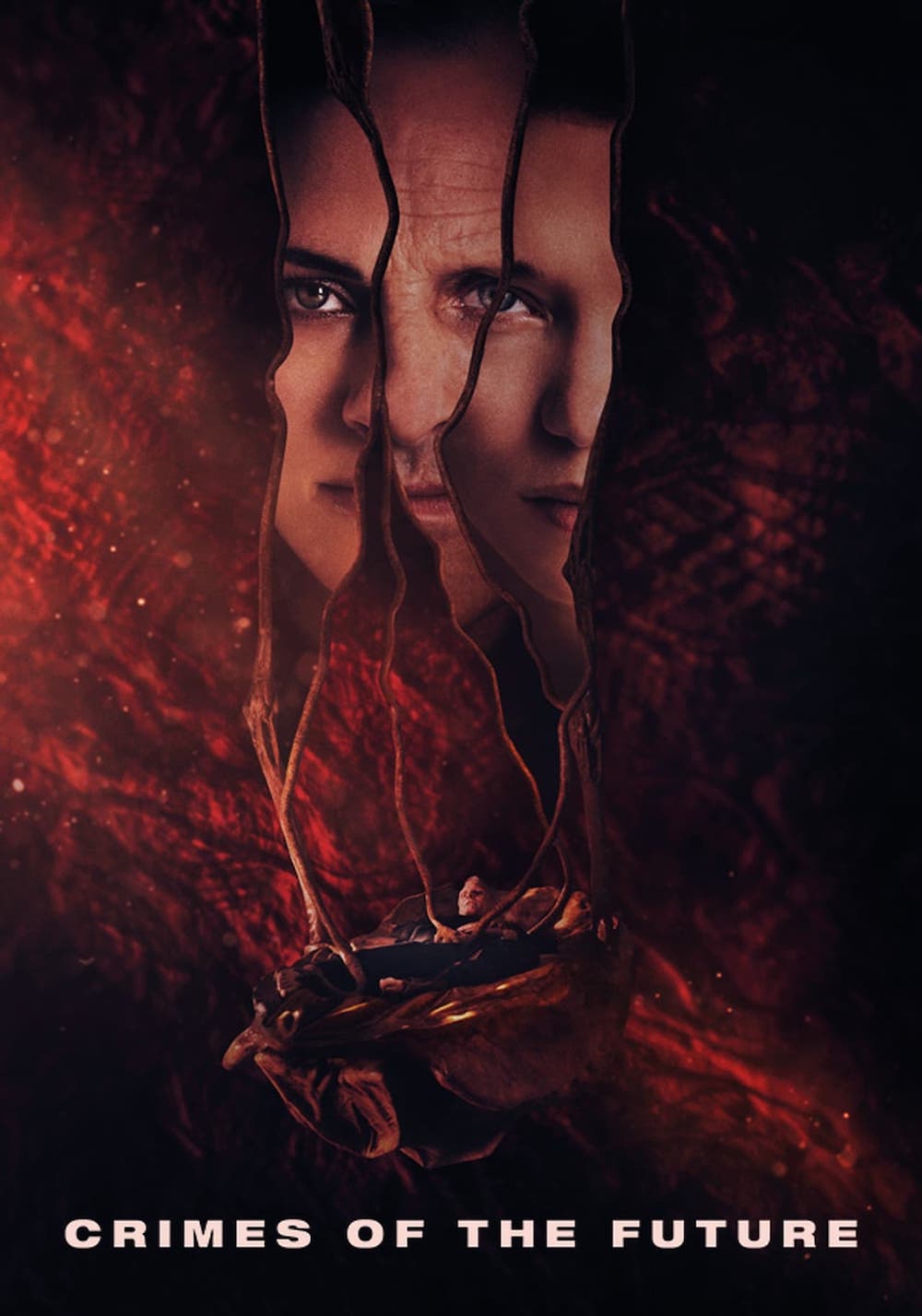
writer & director: David Cronenberg.
starring: Viggo Mortensen, Léa Seydoux & Kristin Stewart.
